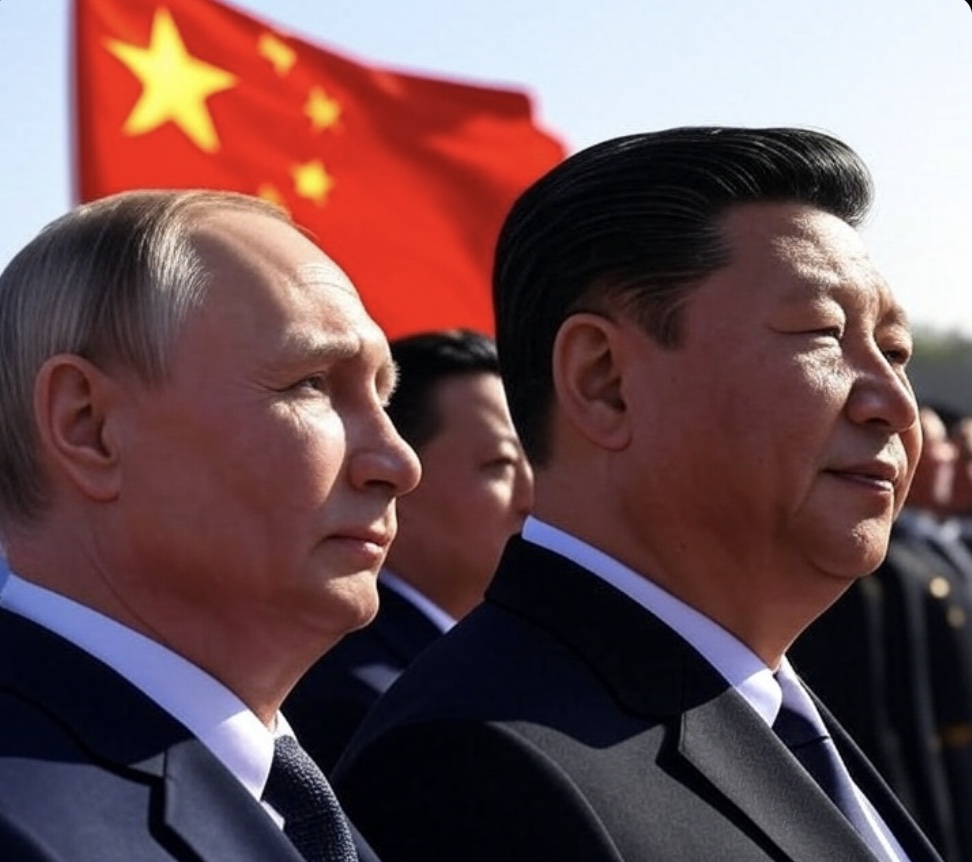


Eighty-six years later, we confront an unsettling parallel. A new axis of evil—Russia, China and North Korea—has formed, and their combined aggression is already dragging the world towards confrontation. The tragedy is that too few in the West are willing to recognise that this is not a distant danger. The first phase of a new world war has already begun, and unless democracies wake up, the next decade could see global mobilisation on a scale unimaginable since 1945.
The evidence is all around us. In Europe, Russia has launched a war of conquest against Ukraine, seeking to redraw borders at gunpoint. In Asia, China encircles Taiwan with naval patrols, while bullying Japan, the Philippines and Vietnam. North Korea, emboldened by its patrons, parades ever more advanced nuclear-capable missiles while shipping artillery to feed Moscow’s war machine. These are not isolated eruptions; they are coordinated moves by regimes determined to undermine and ultimately overturn the international order.
Each brings something to the table. Russia offers battlefield experience and vast natural resources. China provides the industrial base, finance and diplomatic shield. North Korea supplies the sheer audacity of a state that has long ceased to care about rules or reputation. Together they create an arc of instability across Eurasia, daring the West to respond. And respond we must—because history shows that when democracies hesitate, dictators advance.
This is precisely how global wars start: not with a single thunderclap but with a series of crises that gradually merge into a wider conflict. The Anschluss, the Sudetenland, the Molotov–Ribbentrop Pact—each step in the 1930s was rationalised as limited, containable. Today, Ukraine, Taiwan, and the Korean peninsula are treated as separate problems. In reality, they are battlefronts of a single war being waged against freedom.
The West is not prepared. NATO has depleted its stocks arming Ukraine, exposing the fragility of its supply chains. Europe still clings to the illusion that America will always shoulder the heaviest burden, even as Washington debates whether to pivot resources to the Pacific. Defence industries, starved of investment for decades, cannot yet produce the quantities of arms that a sustained confrontation will demand. And while democracies hesitate, the dictatorships act with brutal clarity.
It is not difficult to see where this trajectory leads. If Russia succeeds in Ukraine, China will be emboldened to move on Taiwan, calculating that the West lacks the stamina for another fight. A conflict in the Taiwan Strait would inevitably draw in the United States, Japan, and Australia. North Korea, seeing an opportunity, could launch provocations on the Korean peninsula, forcing South Korea and American forces into combat. In such a scenario, NATO would be forced to defend its eastern flank as US resources are tied down in Asia. Within a decade, this combination of conflicts could spiral into global mobilisation, with every major power engaged.
Some will call this alarmism. Yet history teaches us that world wars creep up while the complacent insist they cannot happen. Few in 1914 believed a Balkan crisis would ignite Europe. Few in 1939 believed a border skirmish in Poland would lead to global conflagration. Today, many dismiss the idea that Ukraine, Taiwan or North Korea could trigger something larger. They are repeating the very mistakes that condemned past generations to catastrophe.
The choice before us is stark. Either democracies recognise that the world is entering a pre-war phase and prepare accordingly, or we drift into a conflict for which we are wholly unready.
This means urgent rearmament in Europe, the revitalisation of defence industries, and the hardening of alliances in Asia. It means reducing dependence on Chinese supply chains, cutting off the flow of Western technology to hostile regimes, and accepting that prosperity cannot come at the price of security. Most of all, it means telling the public the truth: sacrifice will be required, because freedom is under direct assault.
The new axis of evil is betting that the free world is too divided, too timid, and too indulgent to resist. If they are right, we will stumble into a third world war at their pace, on their terms. But if democracies act now, they can still shape events, deter aggression, and prevent the decade ahead from descending into global chaos.
The anniversary of 1939 is not just a historical reminder—it is a warning flare. War is already here, fought in the fields of Ukraine, tested in the waters around Taiwan, and armed from North Korea’s factories. Unless we confront this reality, the 2030s will not be remembered for peace or prosperity but for the full-scale mobilisation of nations in a struggle as grave as that which consumed the last century.
The world is at the threshold. Either we prepare for what is coming, or we will be overwhelmed by it. History will not forgive a third failure to act in time.